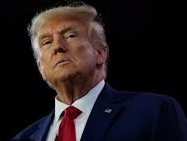Business News of Wednesday, 16 April 2025
Source: www.ghanawebbers.com
Embracing the unfamiliar: Echoes from Trump

Ongoing consultations among trade experts are reshaping global tariff policies. This presents an opportunity for the Ghanaian economy to explore new avenues.
It may be time to reevaluate our trade policies and partners. We should implement outcomes from past national discussions on trade.
The World Bank identifies Ghana’s largest trade partners as China, India, South Africa, the UK, the USA, the Netherlands, Canada, and Switzerland. Ghana's top exports include gold, cocoa beans, and crude oil. The country mainly imports automobiles, petroleum oils, and finished goods.
Ghana's industrialization is reflected in its export categories. In 2022, raw materials made up 43.36% of exports. Intermediate goods accounted for 48.42%, consumer goods were 7.45%, and capital goods were only 0.78%.
Most of Ghana's imports come from highly industrialized countries like China and the USA. This explains Ghana’s choice of trade partners and its Balance of Payments status.
In recent years, Ghana has recorded surpluses in its Balance of Payments. However, these improvements have not significantly boosted overall economic development.
The United States has imposed a 10% tariff on Ghanaian exports to revive its economy. According to the U.S. Trade Representative's office, total goods trade with Ghana was $2.1 billion in 2024.
U.S. exports to Ghana rose by 12.3% to $967.3 million in 2024 compared to 2023. However, U.S. imports from Ghana fell by 28% to $1.2 billion during the same period.
These statistics suggest that without a competitive advantage in exports to the U.S., Ghana will face economic challenges due to increased tariffs and suspension of AGOA benefits.
While seeking diplomatic solutions regarding tariffs with the U.S., it is notable that Burkina Faso ($574M), Mali ($165M), and Uganda ($237M) imported more from Ghana than the U.S. in 2023.
This highlights the importance of the African Continental Free Trade Area (AfCFTA) for international trade among African nations.
I recommend that the government invest in AfCFTA for a larger market beyond Ghana’s borders. Improved access to information about AfCFTA can enhance technology and standardization practices in Ghana.
Financial policies should promote adoption of the Pan-African Payment and Settlement System across Africa to boost trade processes seamlessly.
Additionally, governments must adopt financial deepening policies that reduce barriers to finance access and lower borrowing costs for sustainable production economies.
Recently, President John Dramani Mahama announced increased research funding for agriculture, health, and genetic medicine in Ghana. This initiative could lead to innovations that can be commercialized within Africa.
About the writer:
The writer is Director of Research Policy Initiative for Economic Development (PIED Africa).
Contact: Email: [email protected]
Website: www.piedafrica.org
Phone: +233 506809789










